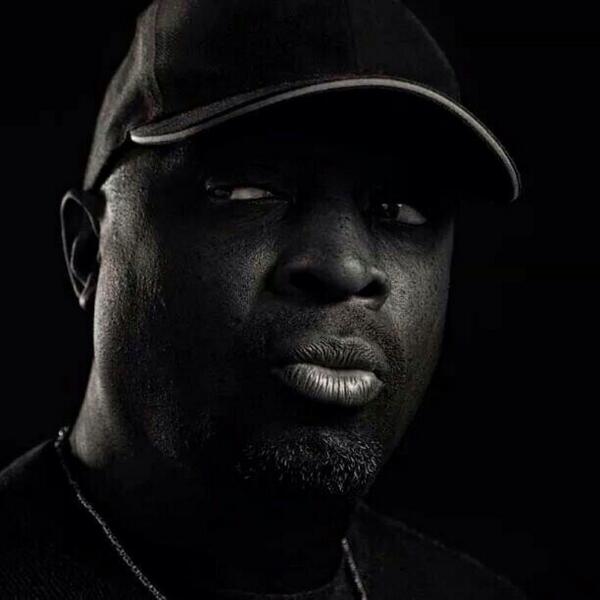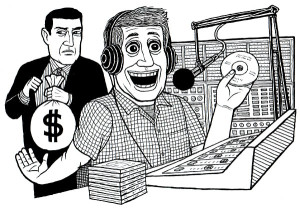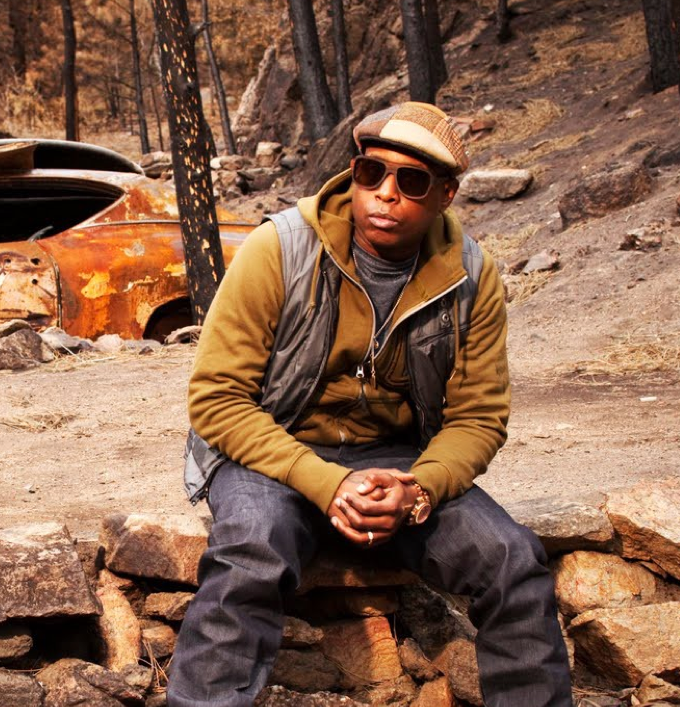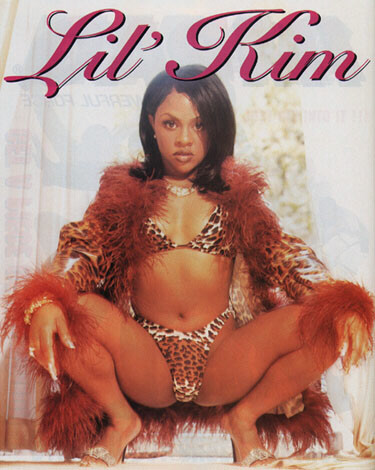And I say that with the best of intentions.
I recently read an article on Medium written by one of the dopest emcees of all time, Talib Kweli! He spoke on why he left major labels alone and struck out on his own independently. Great long form blog post, very insightful to say the least and very disappointing and uplifting all in one, and that’s what led to this article.
You see, I’m what you would call old school when it comes down to hip hop, I was here when it started and fell in love completely with no turning back the day I heard Follow The Leader! For those that don’t know, Follow The Leader was on Eric B and Rakim’s second album and it was released in 1988. Don’t get me wrong I was already a hip hop head, but that song, from that album spoke to me like it was God telling me something, and ironically Rakim goes by the name Rakim Allah, The God MC. So at the end of the day it was God telling me something!
Their previous album Paid In Full was arguably one of the greatest albums of all time, but the debut song, on the second album is what hooked me, it was the very first time that I had to know every single word that an MC was spitting. We didn’t have the internet, so we couldn’t look up the lyrics to the songs, we had to either have damn good memory or do like I did, pause and rewind the tape until I could literally write down every single word that was spit. A painstaking process, but necessary to me at that time because I just had to know that song, from front to back.
That was my moment, the moment I felt it was critical for me to spend a few hours pausing, rewinding, and transcribing a song to make sure I knew exactly what he was saying, I was officially a junkie and my love for hip hop with meaning or conscious hip hop was born out of that experience. From that point on, I was what people call a real/conscious hip hop head and I supported and still do support those who fall into that category.
From Eric B and Rakim, KRS ONE, Public Enemy, X Clan, Poor Righteous Teachers, EPMD, Redman, and Rass Kass to Common, Mos Def, Talib Kweli, The Roots, Lupe Fiasco, Immortal Technique, Pharaoh Monche, and WuTang, etc, the list can on and on but you get the picture right! I support these dudes every time they drop an album. I don’t buy them from the bootleg man, but from legitimate online establishments so they can make money off of their crafts, and continue to make new music. So with that said, I am a real/conscious hip hop fan to the core!
Now back to why I wrote this! It seems that the vast majority of real/conscious hip hop fans are a bunch of liars, they lay claim to the title but their actions don’t back up their claims. The article that I sited earlier that Talib wrote brings you all into question. He stated that he dropped an album via his webpage kweliclub.com and made about $30k off it, based off his statement saying that its sells covered his production cost. I figure he’s made more by now but what pissed me off is that he has over a million “fans” on Facebook, a few hundred thousand on IG and Twitter and more on Tumblr.
So with about 1.5 million fans across 4 social media platforms, why in the hell was he only able to sale $30k in product! That comes out to under 4000 purchases based off the price per unit! So less than 4000 real fans purchased his album and the other 1.496 million “fans” didn’t, WTF! How can you claim to be a fan but not put your money where your mouth is. With that many “fans” he should have at least sold 100 thousand units, which still isn’t even 10% of his so called fan base.
This isn’t just what has happened to Talib, but it has happened and still is happening to every real/conscious hip hop artist the exact same way. Common, Mos Def, The Roots, etc have only seen modest success throughout their careers when it comes down to album sales. And Common has never gone platinum, gold 3 times, but never platinum, and all of their sales have tanked over the past 3-5 years across the boards, even WuTang Clans!
And before we move into the all album sales are down territory, I know that, but the sale of singles is through the roof for most artist, except those who are classified as real or conscious, yet most of those artist have a million plus so called “fans”, go figure!
So what am I supposed to think about this phenomenon?
Well I think that, as indicated by the album and singles sales of these artist, based off the amount of so called “fans”, that the vast majority of “real hip hop fans” can go phuck themselves. And when you all are finally willing to put your money where your mouth is, then you can discontinue the self fornication, until then, read the title!
The “Great Radio Debate”
 Chuck D of Public Enemy fame slammed one of the nations biggest urban radio stations, New York’s Hot 97, for its horrible representation of the hip hop culture (read it here). He goes in on the program director for this and goes into the usual diatribe about how corporations are the new plantations, etc. Hot 97’s program director Ebro and one of their top on air personalities, Rosenberg responded (read it here) by spewing the same old, we play what the streets want dogma. “I assume what he was trying to get at is what a lot of people say as far as blaming Hot 97 and radio in general for the demise of hip-hop culture,” is part of what Rosenberg had to say when talking to billboard a few days ago.
Chuck D of Public Enemy fame slammed one of the nations biggest urban radio stations, New York’s Hot 97, for its horrible representation of the hip hop culture (read it here). He goes in on the program director for this and goes into the usual diatribe about how corporations are the new plantations, etc. Hot 97’s program director Ebro and one of their top on air personalities, Rosenberg responded (read it here) by spewing the same old, we play what the streets want dogma. “I assume what he was trying to get at is what a lot of people say as far as blaming Hot 97 and radio in general for the demise of hip-hop culture,” is part of what Rosenberg had to say when talking to billboard a few days ago.
Just the other day I was listening to WGCI 107.5 here in Chicago when they were having a stop the violence conversation, and every time a caller mentioned that radio stations and their DJ’s need to be more involved in cleaning up the airwaves, all of the people who make a living from said station went into the same spiel, “we just play what the streets want to hear”! So the question should be, why does the streets want to here this type of music?
Most of you are probably unfamiliar with this debate, but it’s been raging on for decades now, and shows no sign of abating. The debate I’m speaking of is the “radio just plays whats hot in the streets” debate! You know, the go to phrase articulated by just about every radio DJ on the planet when the public conscious raises questions about what gets played day in and day out! It’s akin to the “what came first, the chicken or the egg” philosophical pondering, but with much less gravitas, therefore no one actually writes about it, until now!
 To start lets take a brief look into early radio. To keep it short, I’ll just highlight a phenomenon that used to be called “Payola”, or “Pay to Play”. For those of you who don’t know what that means, it’s an industry term for that lets you know which radio stations had DJ’s who would accept payment under the tables to break new music. In short, if you pay us, we’ll play your music! It’s illegal and record industry execs claim that they don’t do it anymore, keyword, claim! As all they did was create a 3rd party system, called independent record promotion, to independently “promote” label artist.
To start lets take a brief look into early radio. To keep it short, I’ll just highlight a phenomenon that used to be called “Payola”, or “Pay to Play”. For those of you who don’t know what that means, it’s an industry term for that lets you know which radio stations had DJ’s who would accept payment under the tables to break new music. In short, if you pay us, we’ll play your music! It’s illegal and record industry execs claim that they don’t do it anymore, keyword, claim! As all they did was create a 3rd party system, called independent record promotion, to independently “promote” label artist.
In this Wikipedia article it goes into more detail about it, but it’s been around since the inception of the music business itself. As late as 2005 – 2006, Sony BMG, Warner Music Group and Universal Music Group were still going back and forth to court about the issue. They eventually had to pay fines to the tune of $10 million, $5 million and $12 million respectively! Then in 2007 four of the largest radio conglomerates were fined also for receiving payola. In 2014 they all claim that they don’t do it anymore, but seriously, the one thing that I’ve learned is that corporations will find a loophole when they need a loophole, period! But lets just say they don’t anymore, and leave it at that.
I contend that they don’t “have to” anymore, they’ve been able to sway the public opinion when it comes down to music for so long that they have literally programmed, pun intended, what the masses want to listen to anyway, so they don’t need to pay to get plays, listeners are asking for it!
I contend that what the people want was systematically programmed into their thinking via Payola. Let us remember, they just “stopped” doing it in 2007, but by that time the “bad hip hop” that Chuck D and other hip hop activist complain about had already been on repeat 10 times a day for 20 plus years. So radio effectively have two generations that have grown up on that type of music, what would you expect the streets to want to listen to?
They made sure that in the early days of hip hop, the artist that rhymed about street life and culture got major airtime. They kept groups like NWA and artist that rapped like them in the spotlight and pretty shortly thereafter the streets all across America started to change. Most will say that it was by coincidence, that the streets were ripe for the violent explosion that came along with what was dubbed as “Gangsta Rap”!
But living through those times and being a person that was more conscious thinking, I know that there were various other artist with great music that weren’t getting any airplay at all. All the conscious brothers like Common, The Roots, Slum Village, Dialted Peoples, Pharoahe Monch, Talib, Mos Def, etc, had dope ass songs that never got radio play. Why not? The streets knew about these cats, but the radio stations weren’t playing them. While Little Kim, Foxy Brown and Trina was getting all the airplay for women; Bahamadia, Rah Digga, Jean Grae, Lady of Rage and other non-sexualized female rappers were struggling to get on a late night mix.
There has always been a disconnect between whats played on the radio and what hip hop heads think is the real cultural expression, but when looked at closely, and knowing the fact that record execs were, and still probably are paying to get records broke using some “loophole”, it’s not a farfetched accusation to say that the industry engineered the “whats hot in the streets” mantra by paying to get songs that would have otherwise died a horrible death in a crate played continuously throughout the day. Thus creating a whats hot on the streets mind state in the youth.
If you think I’m reaching, ask yourself this, how many times have you found yourself nodding your head and singing the lyrics to a song that you know you don’t like? Then tell me whats hot on the radio is always whats hot in the streets, or does hearing a catchy tune repeatedly make it stick in your brain even when you don’t like it. Now imagine what a 5 year old in the back seat thinks about that catchy little hook and beat!
Lupe Fiasco wrote a song about it, (listen here) and guess what, it didn’t get any radio play, at all, and please don’t say it’s because of the hook and name, they could of made a radio version if they wanted to push that message!
X and the Youth
After watching a documentary about Peter Gatian and how the clubs he owned in New York and various other places were hotbeds for illicit drug sells, one particular part of it made me ask myself a question, and that question is; “Is the uptick in the use of Ecstasy (E, Molly, or X) by young Black youths one of the reasons why so many of them love the horrible violent music that’s out, and have no feelings about taking the lives of their fellow peers?”
After watching the documentary and hearing them talk about how techno music became popular in London and New York on the back of X fueled rave parties it dawned on me, MDMA is a drug used to make you feel happy and euphoric. I’ve never used it myself but I know lots of people that have, and they all say that it amps things up, makes anything that you do that much better, anything that you like a little, great, and so on.
The dark side of X is that it has been linked to decreased levels of serotonin production and can cause increased depression and anxiety if it is abused long term. After too long of use, it becomes increasingly harder to be happy without it and you go into depressed stages when not on it.
So what this is saying is that while you’re using it, you like everything way more than you would if you weren’t using it, and if you abuse it for too long you you’ll find yourself in prolonged unhappy and depressed states that can lead to just about anything.
So let’s take this hypothesis and juxtapose it with the youth of today, and as far back as the mid 90’s.
During the mid 90’s E became popular on the hip hop scene as an illicit party drug. Knowing what I know about the hip hop party scene from back then up until now, I can safely say that there are myriads of songs that I have heard in the club whilst intoxicated that banged and made the club go up, but there was no way on God’s green earth that I would actually pay for them and listen to them at home or in the car. But if I was on that Molly, I’d probably have purchased every crappy club banger from then until now.
The Lil Kim AEffect
BLK (Before Lil Kim) women in hip hop were uplifting the Black female with their lyrics. Most of the female emcees BLK were women of distinction and were a part of the Black power hip hop movements of the 80’s. You had women like Mc Lyte, Queen Latifah, Ms Melody, Salt and Pepa, Yo Yo, Monie Luv, etc. If you’re old enough to remember these women, if not google them, you will quickly realize that most of them were not sexy, half naked femcee’s but were for the most part, save one or two of them, overweight and wearing full garb. Salt and Pepa were the only ones out of this group of women who wore tight outfits but that was during the spandex era, which by the way is upon us again. These women wrote lyrics about being respectful women.
ALK (After Lil Kim) you will see that the vast majority of female emcees that were allowed to grace the stage as nationally respected women emcees had to fit the Lil Kim mold.
Hip hop had been usurped by the half naked gold digging hussy, as mom’s used to call them. Lil Kim ushered in an entirely new brand of hip hop for women. She was a firebrand, she knew exactly what she wanted and it was money, sex, and partying. Her lyrics were brazen and unapologetic for who she was. No endearing moments of motherhood, no uplifting lyrics of the Black Queen, she was by her own words, the Queen Bee-itch. But what she did have was the attitude of the independent woman who doesn’t know what being independent really is. She is the direct product of the use what you got to get what you want mind state that some black women teach their daughters. She was trying to escape her own reality by either getting a man with money or doing whatever it took to make money, as she willfully rapped about in her lyrics. For the most part she would write her own lyrics and Biggie would make sure that the words flowed properly to the beats and add his input to make sure she sounded good on her albums.
It’s Official – It Controls Your Brain
 Dead Prez had a line in “It’s Bigger Than Hip Hop” that went – “Uh, one thing ’bout music when it hit you feel no pain/White folks say it controls yo’ brain/I know better than that, that’s game”. When this lyric was spit by M1 of Dead Prez, all who listened to it repeated the same phrase, or something similar either out loud or in their minds; yep, they’re trying to make rap music the blame for the problems in our neighborhood, it’s not the music.
Dead Prez had a line in “It’s Bigger Than Hip Hop” that went – “Uh, one thing ’bout music when it hit you feel no pain/White folks say it controls yo’ brain/I know better than that, that’s game”. When this lyric was spit by M1 of Dead Prez, all who listened to it repeated the same phrase, or something similar either out loud or in their minds; yep, they’re trying to make rap music the blame for the problems in our neighborhood, it’s not the music.
Because hindsight is 20/20 can we say that now? I say not!
If we, Black men continue to say that hip hop lyrics and music does not play any role in the way we act on any level, then you my friends, are in denial. And when you read this and still say that it doesn’t play a significant part in the way our communities have been shaped over the past 3 decades, then not only are you in denial but you’re a blooming idiot and more than likely a part of the problem that plagues us. Any rational person who wants to be, or is, a part of the solution should be able to correlate hip hop and the landscape of the United Mind-States of African America, with the violence and misogyny that is prevalent within our communities today.
To make it easy for you I’ll sight a few instances that can show a direct cause and effect type of outcome.
In 1991 Ice Cube said “I told all my friends, don’t drink 8 Ball cause St Ides is givin ends” in his song “Steady Mobbin”. Shortly thereafter St Ides became the #1 selling beer in the Black community, this gave rise to commercials by just about all the top rappers of that era. From Ice Cube, to 2pac, Dr Dre, Snoop Dog, The Geto Boys, Mc Eiht, The Wutang Clan, Biggie Smalls, Cypress Hill, EPMD, Redman and even Eric B and Rakim got in on the money grab. St Ides was paying rappers to endorse their malt liquor and it worked to the tune of millions and millions of dollars in sales. This was the very first time that I had noticed the power of hip hop. I never correlated the fact that the reason that I was drinking Old English 800 was because NWA rapped about it constantly, or that we went out and bought Brass Monkey because the Beastie Boys wrote a song about it. But when Cube said that line in his song and then did subsequent commercials, I saw firsthand how hip hop lyrics influenced our buying habits, so why wouldn’t they affect other things as well.
The very next year Redman came out with a song called “How To Roll a Blunt” in which he rhymed about how to use a cigar as rolling paper for weed instead of using joint paper. Before this song people smoked joints instead of blunts, although blunts had started hitting the streets before the song came out but it solidified its place in black communities after Redman wrote about it. Blunt cigar makers have made 100’s of millions to billions in revenue off the sale of Blunt cigars since that song was made 20 years ago.


